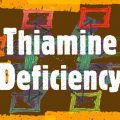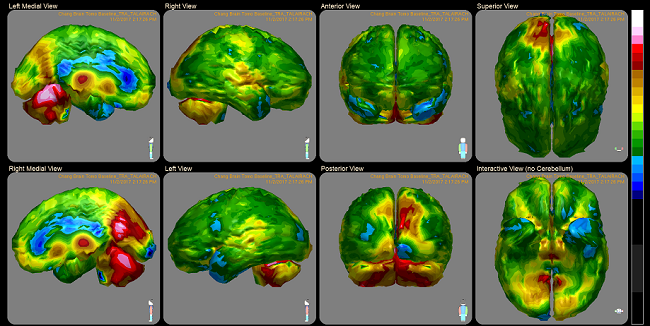A friend shared a story with me earlier today—it was a quote from something amazing that one of her friends wrote. She told me: “I watched my friend become a shadow of himself and it was scary thinking this young, big, strong guy was going to die.”
The story took my breath away and I asked if I can share. I was granted permission—I am not providing names or places, only the experience. There are several reasons for publishing this story and an article. We need to call attention to a huge knowledge gap in our healthcare industry. This knowledge gap also killed my mother and even though I had the requisite knowledge to prevent her death, the physicians ignored me. The medicine killed her even with my knowledge. There was noting I could do against the force of an industry that doesn’t care; where doctors are permitted complete ignorance. In this story, the participants had the suspicion that it was the medicine, but they were told repeatedly by their doctors that their suspicions were nonsense.
I should note that there are several lawsuits against the makers of Cymbalta. Some have already settled, while others are still ongoing.
The Story
“I am sharing this story because I firmly believe that my husband is not a medical anomaly. He is not the only person to get rare side effects from the medication Cymbalta (or any medication for that matter). My hope is that someone reading this may recognize some of these symptoms that are not associated with Cymbalta [on the label] and just maybe they won’t lose nearly a decade of their lives chasing a undiagnosable disease.
In late 2011, my husband injured his back. In January 2012, he was prescribed an antidepressant, Cymbalta, for the associated nerve pain and headaches he had (off-label use). Shortly after taking the Cymbalta, he developed a facial tic and uncontrollable muscle movements in his right shoulder and arm.
It was assumed by the doctors and many neurologists that rather than having injured himself, he had a neurological problem and the “injury event” was the beginning of the disease. As time progressed, his condition progressively deteriorated. Every MRI, brain scan, blood test, spinal tap, sleep study and every other test performed came back normal. The “disease” affected every part of his nervous system; his brain, spinal cord and nerves.
We were told that most known neurological diseases affected only one branch of the nervous system. The closest we got to a diagnosis was when one neurologist said he believed that my husband had one of three rare, progressively degenerative neurological diseases that could only be diagnosed post-mortem with brain biopsy. We were told to expect the disease to continue to progress at the rate it had been and that he would likely develop early onset dementia.
He suffered from debilitating dystonia. His muscles would pull and twist so hard in the wrong way that he often dislocated his shoulder, elbow, or wrist. He suffered from two types of seizures: Grand Mal and Focal seizures. He would go for weeks to months at a time without mentally being aware of the lives going on around him. There were times he didn’t recognize me and other times he had no idea where he was.
He went through periods where he slept 75% of the time. He often fainted during these episodes of mental confusion. He recalled nothing of these periods after they occurred. He occasionally would get both auditory and visual hallucinations. At times his left eye would wander. He developed a condition called nystagmus where both his eyes would vibrate rapidly from side to side. He would occasionally wake up paralyzed and remain that way for hours all the while being completely aware. He was often wholly dependent on me.
I asked every neurologist we saw about the Cymbalta, but each one assured me his symptoms were not associated with the medication. After years of seeing specialists, my husband had given up on finding a name for what he had. His last straw was a neurologist telling him he was somehow creating all the symptoms in his head and he should see a hypnotherapist. In 2017, I finally asked our primary care doctor about the Cymbalta and he suggested we taper him off and find out.
He was tapered onto another antidepressant, as he was understandably depressed at this point. Prior to stopping the Cymbalta, he would get multiple rapid onset sharp headaches a day that caused bleeding from his right ear, eye and nostril. The first week off the Cymbalta he didn’t suffer from a single one of those headaches. Very slowly, over the course of the following year and a half every single symptom disappeared.
The drug companies are not aware of every symptom associated with a particular medication when it is released to the public. If the pharmaceutical companies do not know all the side effects, then the specialists meeting with patients certainly don’t know to look for them. Today we are beyond grateful that my husband has seen such dramatic improvements, but we can never get back the lost years.
As we now look into the next phase, I see so clearly all that has been lost. The emotional toll on our little family has been enormous. From the years of memories that were never made to the financial hardships that illness creates. We can never get those years back and that makes me especially sad for my children. We are in the very early stages of dealing with the consequences of the illness. He has nerve damage along the right side of his body that will require a great deal of physical therapy. He does not remember much of the last 8 years. He has spotty memories of the kids as they grew older. When he looks in the mirror, he does not recognize himself as he expects to see his younger self.
I recently reported all the side effects to the FDA, I’m hopeful that sharing our story now will help someone before they too lose years of their lives. Every medication has side effects, and many are not known.”
WARNING: Do not quit Cymbalta or any medication cold turkey or without the permission, knowledge, and instruction of your medical provider. Some medicines–including Cymbalta–have severe “discontinuation syndrome” (withdrawal), which in some cases can even lead to fatality.
I hope this story took your breath away as it did mine. My intention of sharing this is to create some changes in how medicines are tested for adverse reactions, how they are prescribed, and how much doctors should be required to know about the medicines they prescribe.
To Do’s For The Medical Industry
- Medicines are often very harmful, regardless if they are prescription or over-the-counter medicines. Admit the danger and prescribe with warning attached.
- People who have adverse reactions should take a few minutes out of their lives and report every single adverse effects they find to the FDA here. The FDA cannot read minds. The FDA needs to have all people report every little thing they find wrong with whatever medicine, vitamin, supplement, or herbs they take.
- Medicines are often prescribed off-label. Off-label prescription is a medicine prescribed for something other than what it was tested and FDA approved for. This means that people who receive an off-label prescription are volunteering to be experimental subjects without consent.
- Patients who receive off-label drugs are not always told that the drugs they get are off-label, but even if they are told, they often don’t know what that means. The prescription of a medicine off-label should be illegal.
- Doctors should memorize the adverse effects of the medicines they prescribe better than the names of the drugs they memorized in order to prescribe them.
- Doctors should be required to take a course each year that updates them on all adverse effects—real adverse effects that real people report to the FDA and not only those that the pharmaceutical companies report after their clinical trials.
- In clinical trials people are selected based on the least likelihood for adverse reactions. Therefore, the pharmaceutical companies, by definition, underestimate the side effects of all medicines they create. Clinical trials should require the inclusion of subjects that represent the general population with all their health conditions and interacting medicines. All adverse reactions must be included in the adverse reactions list.
- Clinical trials remove people in an evaluation phase who develop any adverse reaction to the drugs under testing. The adverse reactions for which these subject were dismissed are often ignored and are not reported as part of the final adverse effects that go on the label of the medicine. All adverse reactions should be reported from all parts of the clinical trial and all should be noted as adverse reaction on the label.
- Doctors should be required to pass a test on adverse reactions to each new drug every single year, where the test is created and overseen by an independent expert group that collects all reported adverse effects from the FDA database.
This is not a comprehensive list; it is only a start. Feel free to send me your recommendations and I will update the article.
We Need Your Help
More people than ever are reading Hormones Matter, a testament to the need for independent voices in health and medicine. We are not funded and accept limited advertising. Unlike many health sites, we don’t force you to purchase a subscription. We believe health information should be open to all. If you read Hormones Matter, like it, please help support it. Contribute now.
Yes, I would like to support Hormones Matter.
This article was published originally on February 28, 2019.









